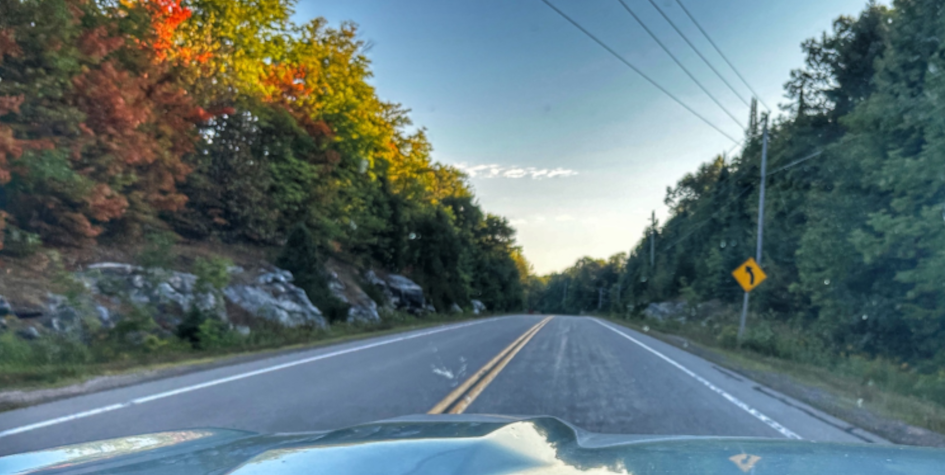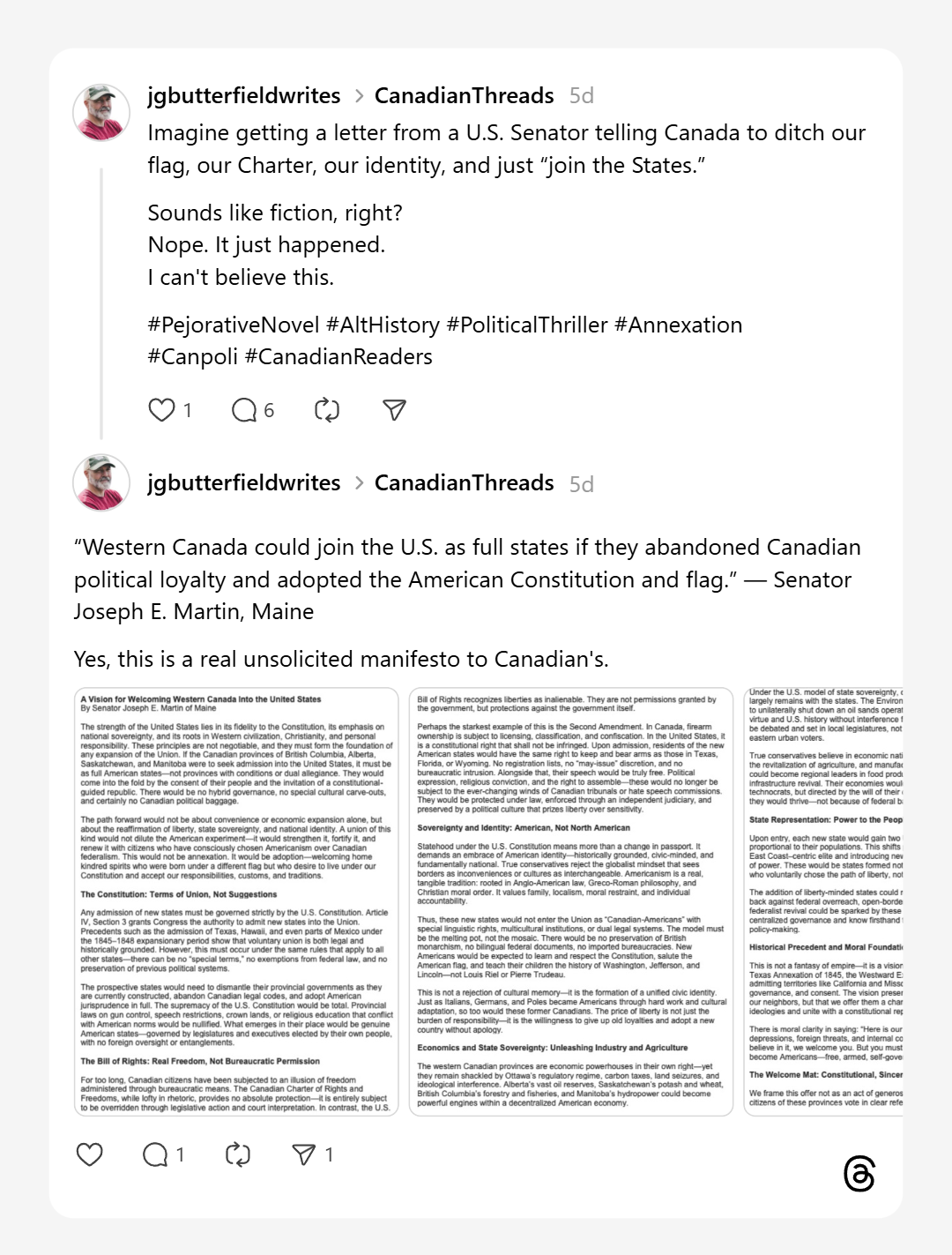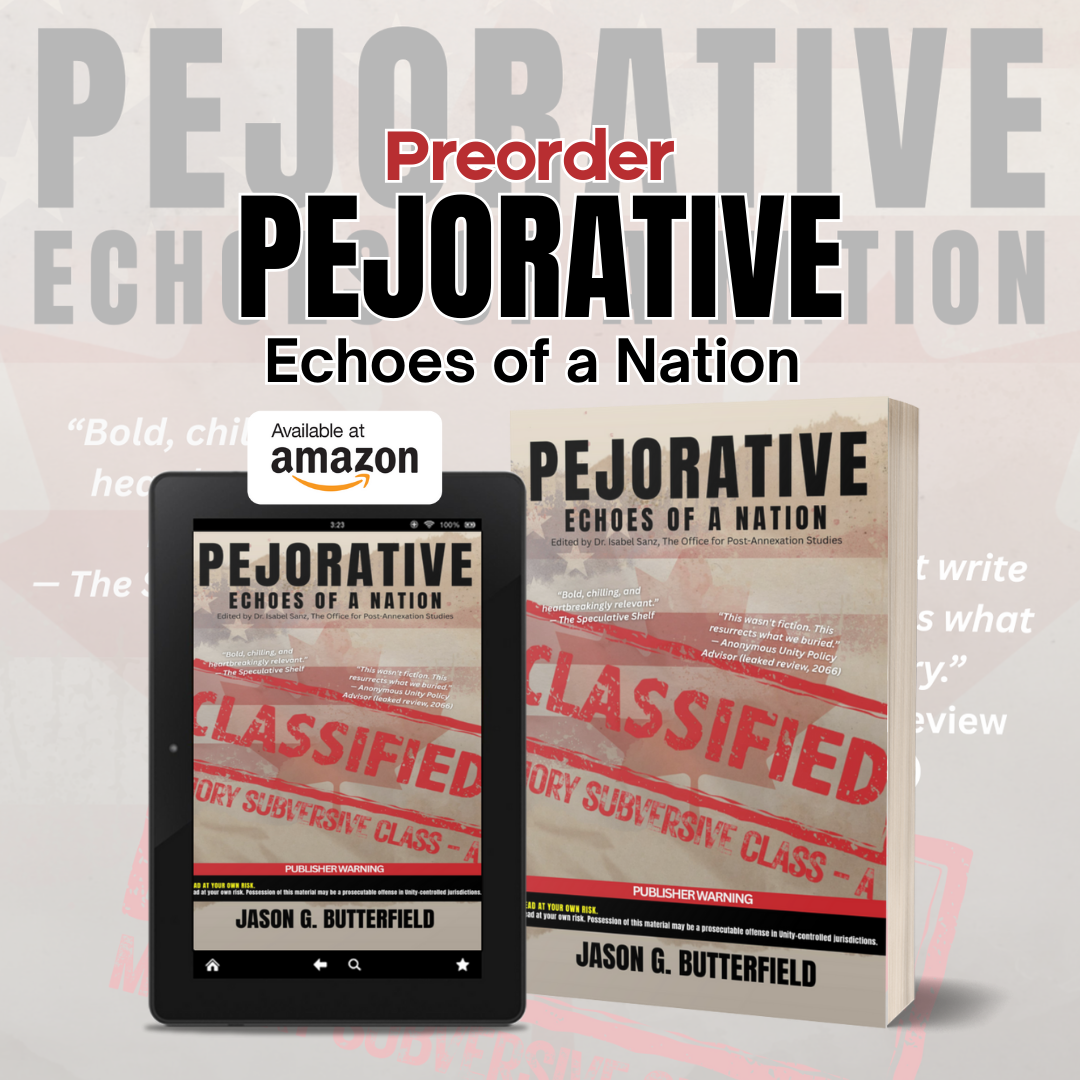
Date Sent: 23 August 2025 Origin: Forward Observation Post / Reality Line B Urgency Level: Moderate
“Some truths don’t need decoding—they just need courage.”
The road wound higher than I remembered, climbing through highland hills with just enough guardrail to suggest safety. On one side, forested hills stretched into layers of green and shadow. On the other, a drop, sharp and unforgiving, reminded me of gravity’s patience. Above it all, a clear sky stretched like a promise.
There’s something about highland roads that distill memory and anticipation at once. You climb, you turn, you hold the wheel steady, and you trust the guardrails will do their job if you falter. It’s both nostalgic and forward-looking. I remember being younger, crammed into the backseat on family trips, lulled half to sleep by the rhythm of turns and the blur of trees. Back then, the future was just the next roadside diner, the next lake, the next summer.
Now the metaphor presses heavier: the road ahead is a nation’s path, twisting, rising, lined by rails that were built decades ago, never tested against the weight barreling toward them.
The Senator’s letter sits on my screen. “Western Canada could join the U.S. as full states if they abandoned Canadian political loyalty and adopted the American Constitution and flag.”

There it is on the screen: the guardrail tested. Not with force yet, but with suggestion. A U.S. Senator, comfortable enough in his conviction, writing directly to Canadians as though sovereignty were negotiable, as though borders were just administrative inconveniences waiting to be signed away.
It would almost be comical if it weren’t a pattern I’ve been tracing for years in my fiction, and watching metastasize in reality.
I can’t help but think about my father when I read words like that. He emigrated to Canada, as a child, after the last war disposed fascists and grew up in a country that still had to shake off the reflex of deference, to the States, to any larger power that claimed the right to decide our direction.
It’s been a year since he passed. I remembered it not by calendar notification but in the sudden, quiet way grief returns: a sunset on the dock, the ripple of light across water, and the thought, He would have loved this.
I’m sure he would’ve hated this letter. Like so many who were born here, or came here from elsewhere and made Canada theirs, he would’ve seen through the politeness of “partnership” and called it what it was: annexation by invitation.
The hopeful future I cling to is not naïve optimism; it’s a recognition that hope must be earned, defended, and built. The road ahead is not smooth, our politics are fractured (more steady under the current leadership), our provinces restless, our alliances strained. But the guardrails are there: the Charter, the flag, the memory of those who insisted we could stand apart without standing alone.
To drive without noticing those rails is dangerous. To assume they will hold no matter how recklessly we speed toward them is worse.
The Senator’s letter was a reminder: there are those willing to test how brittle our guardrails might be. They dress it as partnership, cloak it in rhetoric of shared prosperity, even whisper promises of protection. But underneath is the same cliff I saw on the drive, the drop into someone else’s destiny, someone else’s laws, someone else’s story.
I think about nostalgia often, I do. It’s a Gen X curse. I think about the road trips of my youth, about the radio static fading between stations, about Canada itself as a kind of background music, reassuring, unassuming, stubborn in its rhythms. That nostalgia is not just personal. It’s national. A collective memory of a country that insisted on its own road, even if it meant taking the long way around.
That nostalgia isn’t enough. We can’t live in the backseat of history, dozing between turns while someone else takes the wheel.
The hopeful future I want is one where we remain awake, steering carefully, watching the curves, acknowledging the cliffs, and remembering that guardrails need maintenance. Hope is not the absence of danger; it’s the presence of resolve.
The Senator’s letter is not the first of its kind, nor will it be the last. Annexation rarely begins with tanks anymore. It begins with correspondence. With polite offers. With appeals to shared culture and economic convenience. With the quiet erosion of what seems obvious: that a country has a right to remain itself.
The fight, then, is not just against external pressure but against internal fatigue, the temptation to shrug and say, “Maybe it would be easier.” That’s how guardrails rot. Not through sudden impact, but through years of neglect, weathering, and resignation.
As I think about all this, I also think about my sons. They’ve grown up in a Canada that feels less certain than the one I knew. They see headlines of secession votes, border disputes, trade wars dressed as diplomacy. They hear voices suggesting our best option is assimilation.
What do I tell them? That nostalgia alone won’t protect them. That the hopeful future is not inevitable, but conditional. That it requires vigilance, courage, and an insistence on remembering who we are, not because the past was perfect, but because surrendering it would erase more than mistakes. It would erase the possibility of building something better.
Driving back down the highlands, the road seemed both familiar and strange. The same turns I’d taken as a kid, but sharper now. The same guardrails, but thinner than memory suggested. The same sky, stretching out, holding promise.
The metaphor writes itself: the road continues, but not without risk. Hope is the sky, but vigilance is the wheel. Nostalgia is the forest, but sovereignty is the guardrail.
We are not passengers. We are drivers. And if the Senator’s letter teaches us anything, it is that there will always be someone willing to reach across the border and try to take the wheel.
The question is simple, though never easy: will we fight to keep our hands on it?
End Dispatch. -J.B.
P.S. Pejorative: Echoes of a Nation is available for preorder on Amazon.

I’m Jason, a science fiction writer obsessed with the places where technology, military life, and human nature collide - often in spectacularly messy ways. With a background in tech and the military, I love crafting stories full of sharp dialogue, immersive worlds, and unexpected humor. Follow along if you enjoy these kinds of stories or want to learn more about my writing and upcoming novels.
